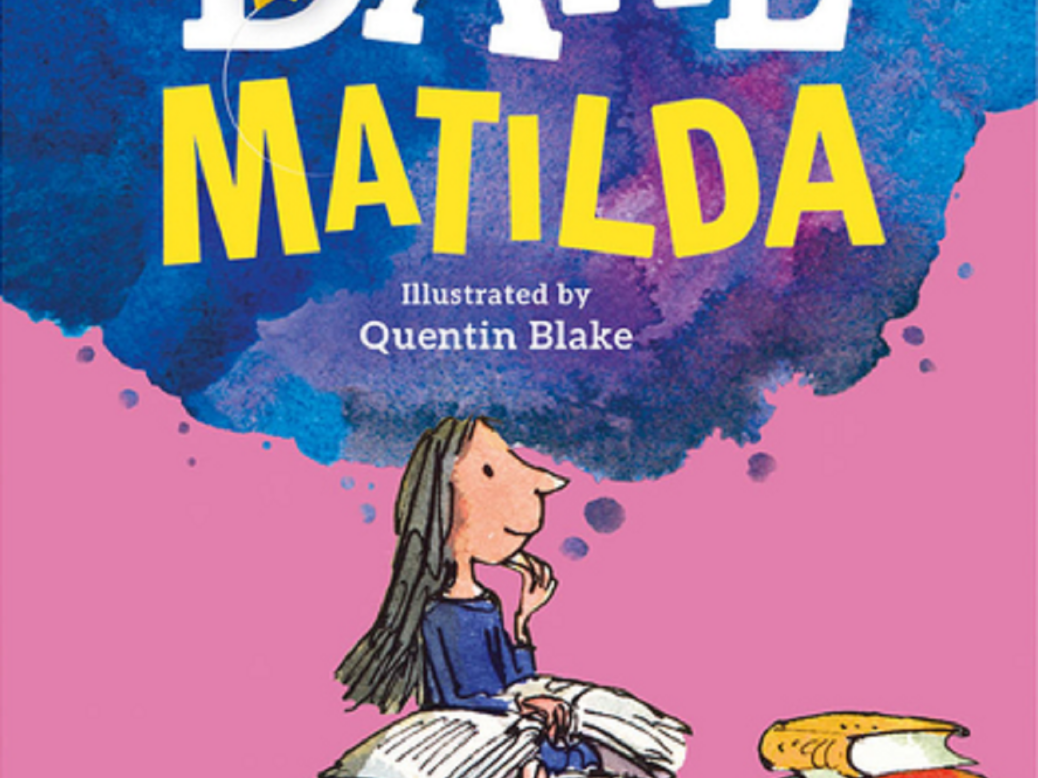
“Everyone is born, but not everyone is born the same… One way or another, though, every human being is unique, for better or for worse.”
These are the opening lines of the film version of Roald Dahl’s Matilda, the iconic story that turns 30 years old today. The novel follows Matilda Wormwood, a precocious six-year-old girl raised by unloving parents who are unappreciative of her brilliance. Mr and Mrs Wormwood send Matilda to Crunchem Hall, a primary school lead by headmistress Agatha Trunchbull – a former Olympian-turned-shrieking disciplinarian who loves chocolate cake, loathes pig tales and despises children.
Matilda’s story of standing up to power alongside her teacher Jennifer Honey is rightly celebrated as a feminist tale, spawning successful film and stage adaptations. But many in the wider LGBT+ community also hold her story close to their hearts.
Matilda’s status as a queer classic should surprise no one. From an early age, she is neglected by her parents, who can’t even remember how old she is and show no interest in her. Her brother is accepted, whereas her considerable intellect is left unnoticed because she is a girl. LGBT+ people often flout gender norms from an early age, from boys like me who want to take ballet lessons, wear tutus and sing Spice Girls, to girls who aren’t interested in “girly” activities. Many of us can identify with Matilda’s gifts being unappreciated because they do not conform with traditional expectations of boys and girls.
Before starting school, Matilda longed for friendship, finding companions in the kind, courageous characters from her favourite books. Dahl writes that “books gave Matilda a hopeful and comforting message: You are not alone”. LGBT+ people often engage in similar behaviour in an attempt to situate themselves in a heterosexual world. Research by sociologists Beth Kivel and Douglas Kleiber highlights the importance that reading holds to lesbian and gay youth seeking social acceptance and emancipation. Similarly, Alexander Dhoest and Nele Simons’s research into gay male media use reveals that consumption of books and magazines peaks in the years “before or during coming out”, as gay men seek refuge in literature.
Matilda provides an early lesson in “disidentification”, an academic term used to describe the process in which LGBT+ people assign queerness to cultural characters or stories that are not explicitly queer. Coined by cultural theorist José Muñoz in 1999, disidentification represents an early coping mechanism that queer people use to subvert cultural norms in the absence of stories that they relate to. Finding sanctuary in books while her family worship television, Matilda employs a similar strategy.
Yet there are elements of Matilda that are less productive when viewed through a queer lens. Particularly in the film and stage adaptations, Trunchbull is coded as a lesbian, from her British accent – long used in cultural production to suggest queerness and duplicity – to her masculine appearance and sporting prowess. While there is much in Matilda that still seems radical and relevant three decades on, using Trunchbull’s non-conformist features to accentuate her nastiness isn’t one of them. The tradition for a man to play her in the stage adaptation – making her a constant object of ridicule – also feels disconnected from the play’s progressive message.
As a story of resistance, Matilda has particular relevance in the Trumpian era, particularly given the fact that her mother, a superficial woman who brags about choosing “books over looks”, enables her father’s appalling behaviour. Like Matilda’s father, Trunchbull maintains her authority through gaslighting Matilda into believing she is powerless. Both are dismissive of educated people and obtained power and influence through cheating and lies – Wormwood by selling stolen car parts and Trunchbull by murdering Miss Honey’s father. When the president thinks not paying taxes makes him “smart” and said he was “excited” for the housing market crash, these traits feel uncomfortably relevant.
The pair’s rants could almost be lifted straight from Trump’s Twitter timeline, such as Wormwood telling Matilda: “I’m smart, you’re dumb; I’m big, you’re little; I’m right, you’re wrong, and there’s nothing you can do about it”. Authoritarian Trunchbull brands children as “disgusting maggots”, claiming that “a bad girl is a far more dangerous creature than a bad boy” because they are “much harder to squash”.
To mark the anniversary, illustrator Sir Quentin Blake has released a set of illustrations depicting adult Matilda as an astrophysicist and poet. A statue was also unveiled of Matilda taking on Trump – the perfect tribute to a character renowned for standing up to bullies.
Dahl’s tale displays the uncomfortable truth that sometimes those who we trust to cherish and protect us, such as parents or headteachers, aren’t always prepared to fight our corner. Many LGBT+ people have had to learn this the hard way. I still remember the sinking feeling of realising that a teacher, a youth worker, or even a relative wasn’t on my side.
Behind the gloriously camp aesthetics, ludicrously iconic one-liners and a sprinkling of magic, Dahl’s tale teaches us that it is normal for both children and adults to be hiding pain beneath the surface. For LGBT+ people searching for their tribe, Matilda is a reminder that the family we choose can be more valuable than the one we were born into –and that kindness is the most valuable gift of all.
This article was updated on 3 October 2018 to make it clear the opening lines quotes are from the film version of Matilda.





